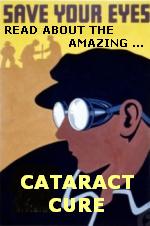|
In Long Ago Days, Journalists Were Gods and Heroesby Thomas M. Sipos |
|
MENU
|
Twenty years ago, while writing a retrospective on Kolchak: The Night Stalker, I had an epiphany. Journalists are only powerful to the extent the public cares about their reporting. Should people not trust journalists -- or trust them, but not share their concern for an issue -- the journalist's influence evaporates. Today that might not seem like much of an insight. Journalists are fervently "exposing" this or that about Trump, or Russia, or whatever. But much to their frustration, many people ignore their exposÚs. Partially it's because people don't trust journalists. And partially it's that, even when people believe the "facts" as reported, they don't care. So what if Trump is obnoxious and a bully? So is the other side. So what if he's arresting border crossers? They broke the law. So what if Trump talked to Putin? So did Obama and Hillary. World leaders talk. So what? People make up their own minds about what's important. Wasn't it always so? No. There was a time when people not only trusted journalists on the facts, they trusted journalists' judgments as to which facts were newsworthy. After The New York Times published the Pentagon Papers (helping end the Vietnam War), after The Washington Post investigated Watergate (helping end the Nixon presidency), and about when Walter "the most trusted man in America" Cronkite anchored CBS News, American popular culture reached a zenith in idolizing journalists. Never before or since have reporters been so celebrated. From All the President's Men (1976) to TVs Lou Grant (1977-82), reporters were Hollywood heroes. Three Days of the Condor (1975) ends with Robert Redford bringing his evidence against the CIA to The New York Times. Once the Times has it, you know the CIA is toast. Even horror shows celebrated reporters' integrity and power. Kolchak: The Night Stalker (1974-75) featured an investigative reporter who, each week, discovered some unearthly menace. It could be supernatural, or monster, machine, or alien. Karl Kolchak always dug up the truth. And then ended each episode by telling us, the viewers, how his story had been suppressed. Why suppress Kolchak's news reporting? Because it's both true and powerful. It matters. People care. Nobody bothers to suppress the impotent and irrelevant. That's why, despite the censors' victory each week, Kolchak is ultimately an optimistic show. It assumes that, if only one got "the truth" out to the public, everyone would see it, agree on it, and rise up to change things. This notion that people will change their minds if only they hear your story is assumed in many tales. In Atlas Shrugged, John Galt's radio speech converts America to Objectivism. In 1984, Winston Smith contemplates the proles' ability to overthrow Big Brother if only they knew the truth. In the hilariously inept Born in Flames (1983), an armed cadre of radical feminists invade a TV network control booth, forcing technicians to broadcast their taped speech. The film is full of their speeches. The notion that watching one would convert the American masses to revolutionary Marxist feminism (or whatever their niche ideology was called -- it's been a while since I saw the film) is optimistic to the point of psychotic self-delusion. In the 1970s, Hollywood depicted journalists as sincere truth seekers, and the public as ever ready to believe. This was doubly optimistic on Hollywood' part, seeing that movie journalist always dug up liberal truths. Network (1976) was a rare film from that era to disagree. The film predicts that money, ratings, and stardom will corrupt journalism. It didn't. It made things worse, but journalists, and their employers, were never the noble truth seekers of (recent) Hollywood legend. Today Network is admired for its prescience. Yet The Howling (1981) was more prescient, despite its being a low budget horror film. The Howling predicts there will come a time when people will be so jaded, they will not believe what newscasters tell them -- or even show them. The film ends with a newscaster (Dee Wallace) breaking a story about werewolves. And she has proof. She transforms into a werewolf, even arranging to be shot and killed on the air. But her death is in vain. Viewers see it and shrug it off. If it's on TV, it can't be trusted.
Who today trusts TV news? Last week, KFI-AM's John and Ken were laughing over the frustration of Trump haters in the news media. They publish and broadcast an avalanche of anti-Trump stories, filled with photos and video, and Trump's approval ratings increase. Even when Trump's fans trust the alleged facts being reported, they don't think it's important. So what if CBS News thinks their latest story is of earth-shattering significance? Walter Cronkite is dead. When I was a child growing up in the 1970s, journalists were gods and heroes. It hadn't always been so. It wasn't destined to last.
|


